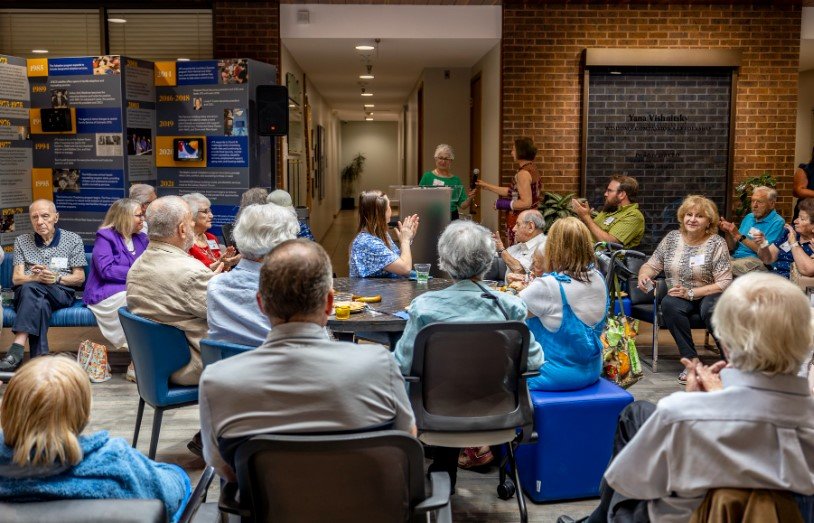In a sweeping move, President Donald Trump’s executive order to pause the resettlement of refugees has brought Atlanta’s once-thriving refugee resettlement operations to a halt. For at least the next three months, no refugees will be relocated to the city, leaving organizations and families caught in a limbo of uncertainty.
This pause echoes a familiar approach from Trump’s earlier term and has sparked a ripple effect throughout the local refugee community. The impacts are being felt by those who have worked tirelessly to help refugees find new homes and start fresh lives in Atlanta—a city that has long been a welcoming hub for people fleeing war and persecution.
A Sudden Reversal of Hope
For many refugees, resettlement to the U.S. represents the culmination of years—sometimes decades—of waiting. Individuals who have spent years in refugee camps, dreaming of a new life, are now being told that their plans are on indefinite hold. “Could you imagine being like, ‘I’ve been in a refugee camp for 20 years. February 4th. I’m going to America. I get to live out the American dream,’” said Justin Howell, executive director of the International Rescue Committee (IRC) in Atlanta.
For these refugees, the news is devastating. After years of longing and anticipation, they were finally set to make their way to the U.S., only to have those dreams dashed. “Now it’s like, no, you’re not, and by the way, your stuff’s only good until March the 1st and now you have to start all over again,” Howell continued, reflecting the frustration and confusion that many refugees and resettlement workers now face.

Howell pointed out a key issue that complicates the situation: background and medical checks that refugees undergo are only valid for a limited time. The IRC in Atlanta had already received all refugees scheduled for arrival before the cutoff, but those who were set to come later are now facing delays or uncertainty about when they might be resettled.
The Local Organizations Under Strain
The Welcome Co-Op, a nonprofit organization that partners with Atlanta’s five refugee resettlement agencies, has been one of the key players in preparing for the arrival of new families. Emily Laney, the executive director of the Welcome Co-op, emphasized the logistical challenges of this sudden disruption.
“We’ve been preparing for the inevitability of this and are hoping and working towards expanding to support more families in our community,” Laney said. The nonprofit’s mission has long been to help refugees integrate into the Atlanta community by setting up apartments and providing essential services to help them adjust to life in the U.S.
With the sudden cessation of refugee resettlement, these organizations now face the difficult task of managing resources, housing, and support for families who had been expecting to arrive. In some cases, those who had already made preparations for resettlement must now start from scratch, scrambling to find new avenues of support or make alternative plans.
The Impact on Refugees Waiting for Resettlement
The halt in resettlement also has implications for the refugees already waiting. For many, the delay means that they must stay in limbo, not knowing when or if their dreams of a new life in the U.S. will ever be realized. In some cases, refugees have been forced to continue waiting in overcrowded or unsafe conditions in refugee camps, where their futures feel uncertain at best.
“We’ve seen the toll that this takes,” Howell said, noting that prolonged waiting periods only add to the trauma that refugees already carry. “It’s already a difficult process, and now it’s even more complicated for everyone involved.”
For those in the refugee community, this executive order is a stark reminder of the volatile political landscape that affects their futures. What was once a path to safety and a better life has been halted, leaving many to wonder what comes next.
The Political and Social Ramifications
The decision to pause refugee resettlement is not only a logistical setback for Atlanta’s nonprofit organizations but also a significant political move. Trump’s executive orders regarding immigration have consistently garnered both support and criticism, with this latest measure serving as a continuation of his administration’s hardline stance on immigration and refugee intake.
While some argue that the pause is necessary to ensure national security and review the vetting process, others see it as a blow to human rights and an affront to those who are fleeing danger. The broader implications of this pause are felt not only in Atlanta but also across the country, as cities that have long been sanctuary cities now must contend with the disruption of essential services that have been built around refugee resettlement.
The resettlement pause may also have lasting effects on the public perception of the refugee process. By temporarily stopping the flow of refugees into the country, the government may have exacerbated fears and tensions around immigration, while simultaneously halting crucial support for families who have already faced immense hardships.
What’s Next for Refugees in Atlanta?
For now, the future of refugee resettlement in Atlanta remains uncertain. The IRC and Welcome Co-Op, along with other local organizations, are doing what they can to prepare for a resumption of services, but the reality is that they are operating in a climate of unpredictability.
Maximizing resources and continuing to support the refugees already in the city will be paramount as these groups await further guidance. However, unless policies change, these local organizations may be forced to scale back their efforts or halt their work entirely.
The question remains: Will the U.S. return to a more open refugee resettlement process in the future, or is this the beginning of a prolonged pause that will reshape the refugee landscape for years to come?
